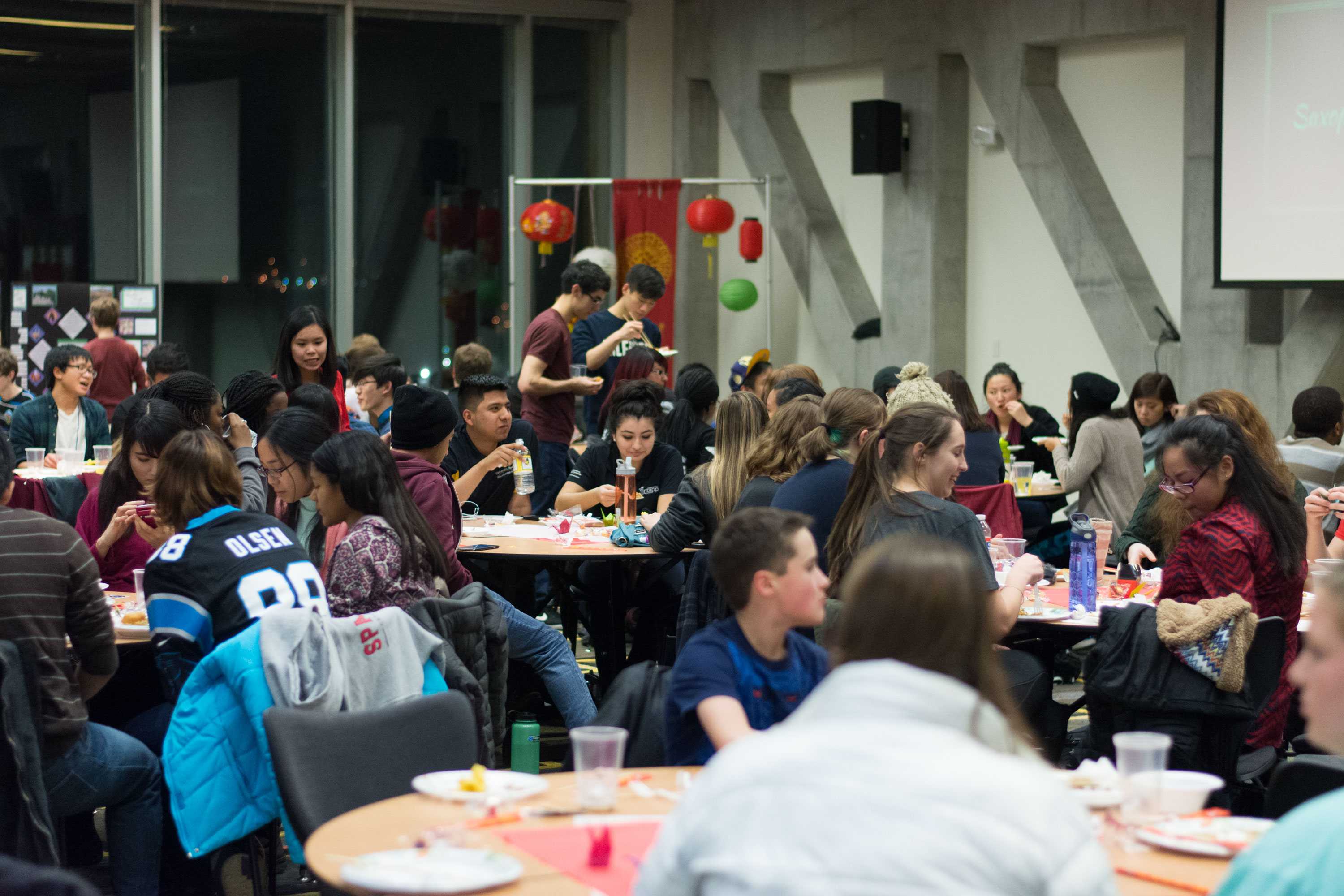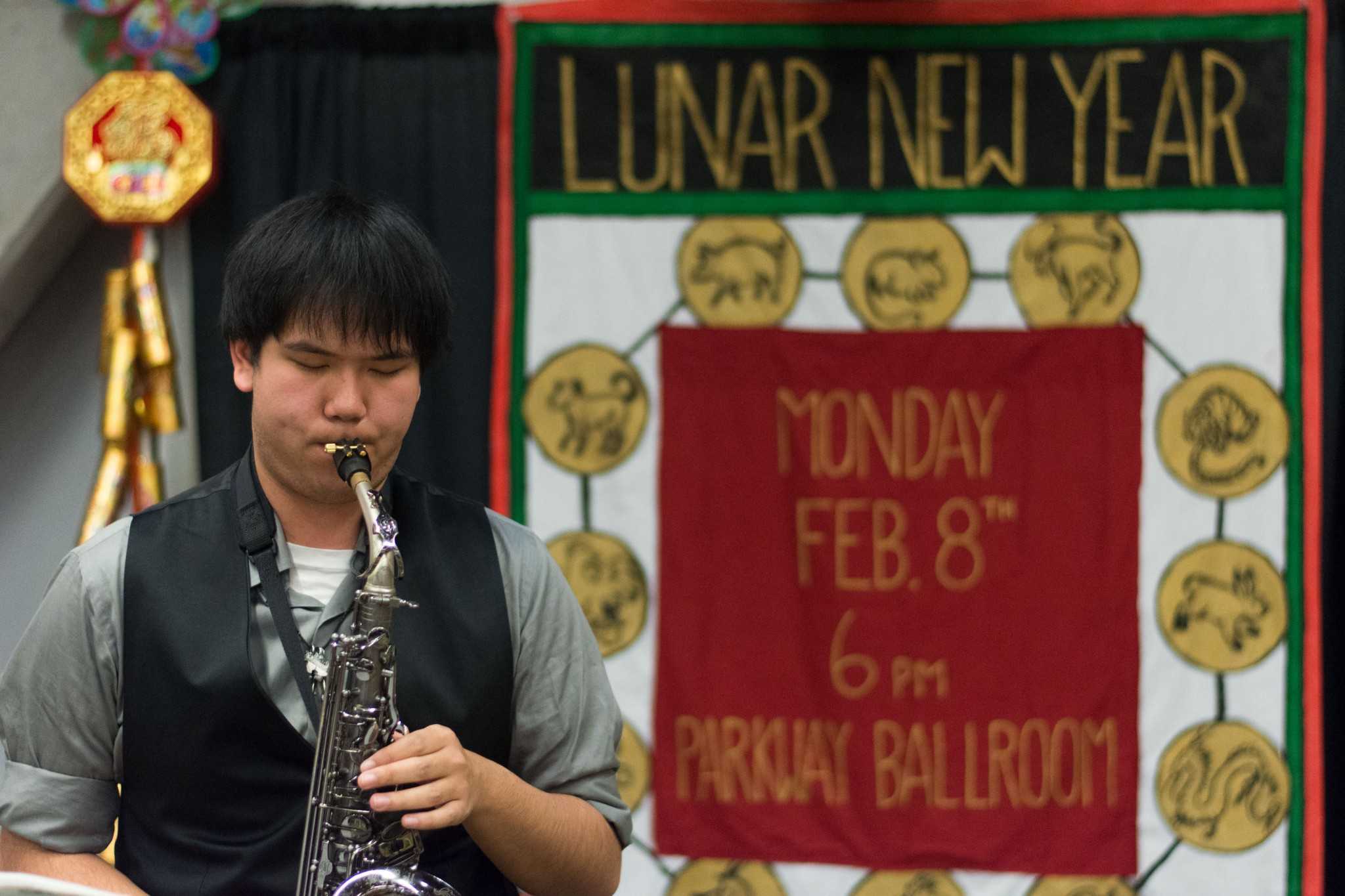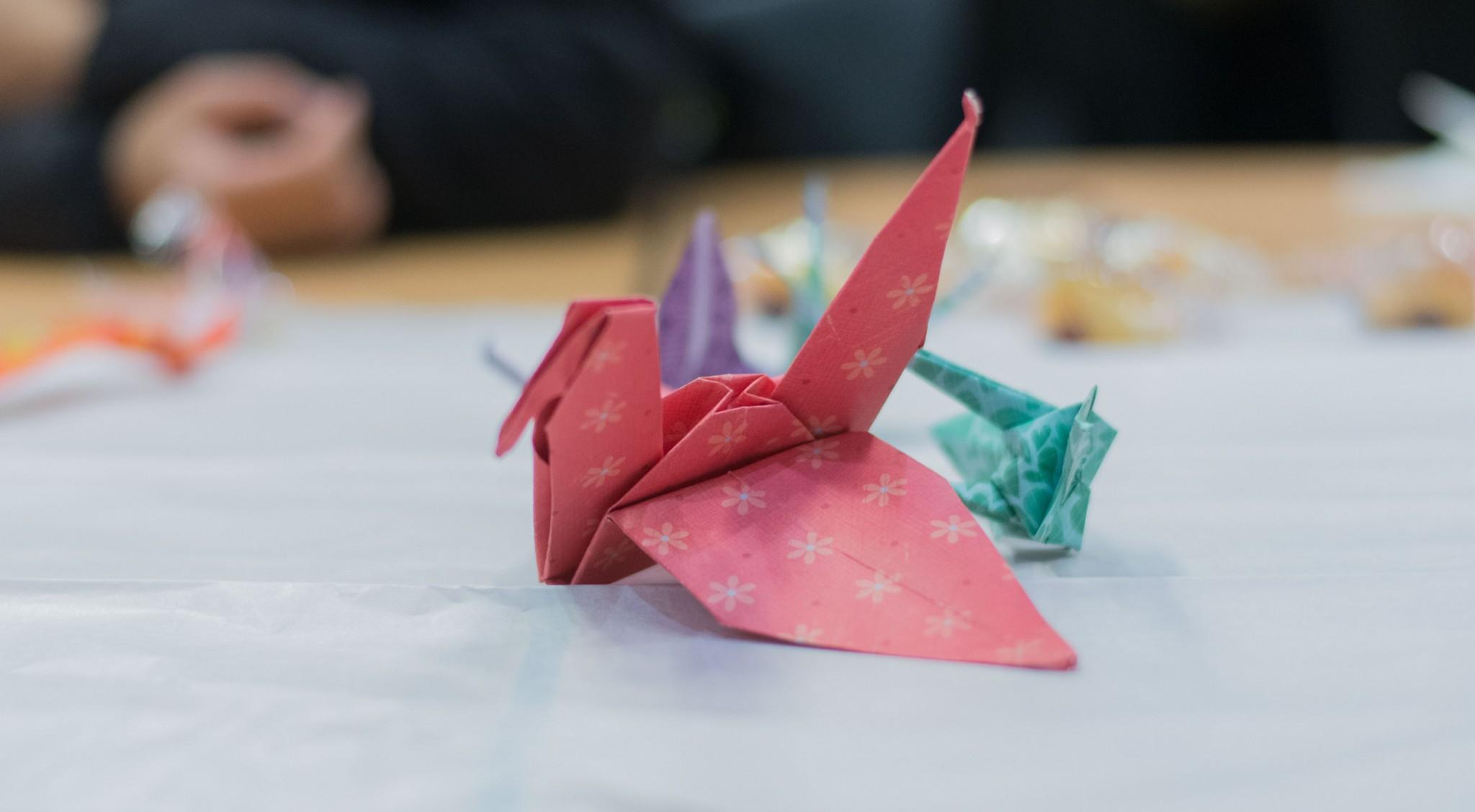Appalachian State students held their own celebration of the Chinese New Year in I.G. Greer on Monday. The festival allowed students and different clubs to showcase their talents and ring in the year of the monkey together.
The Chinese New Year began on Feb. 8, 2016, and lasts until Jan. 27, 2017. For most people that celebrate the Chinese New Year, it is a time for renewal and the biggest events are returning home and visiting family, lecturer of Chinese Melvin Ballard said. In China, the lunar New Year has become the largest annual migration of humans on the planet, Ballard said.
The Chinese New Year festival is celebrated in accordance with the lunar calendar, which predates the Gregorian calendar. The traditional Chinese calendar is talked about as being the longest unbroken sequence of time measurement in history, Ballard said. The lunar calendar dates back to the 14th century, however there is hard evidence that it has existed as early as the Shang Dynasty in 1766-1122 B.C.E.

“We are on more stable ground by talking about evidence for a calendar exhibited in writings on oracle bones associated with the Shang Dynasty,” Ballard said.
The animal associated with the calendar this year is the monkey, who is clever, crafty and cunning. Ballard said that this year stock markets could be problematic and people should be warned about making major financial decisions during the year of the monkey. However, personal relationships with family members or significant others could work out well.
“While all of the animal signs have both positive and negative characteristics, it is generally accepted that the year of the monkey could see all sorts of flip-flops in terms of social organization,” Ballard said.
Anyone who was born in the year of the monkey are advised to take caution, as any year corresponding to an individual’s animal sign is a year that might be fraught with problems, Ballard said. Traditionally-minded people might carry a small protective talisman on them throughout the year.
Although the exact origin of animal association for the different years is unknown, there has been a suggestion about a yin yang theory.
“The concept of contrasting principles is prominent in the fact that six of the animals are domestic, while the remaining six are wild or believed to be wild in the case of the mythological dragon,” Ballard said.
Ballard said that there are many stories about the order of animals included in the calendar. The most prominent tale involves a race between a rat, ox, tiger, rabbit, dragon, snake, horse, sheep, monkey, rooster, dog and boar. The order in which the animals crossed the finish line determined the years each animal represents.
App State CULTr presented a lecture entitled “At Home in the World: Religious Roots of Lunar New Year Customs in Asia and Abroad” given by Cuong Mai, a religious studies professor at Appalachian State.
After the lecture, Chinese Culture Club, Asian Student Association, Cultural Awareness Student Engagement Council and Chi Upsilon Sigma held a lunar New Year festival in the Parkway Ballroom. There was vegetarian fried rice and lo mien noodles provided by China Wok.
There were also performances from NouN, VoiceMale and Asian Student Association, as well as also poetry readings, a saxophone solo and storytelling by a member of CCC.
“This festival is a great opportunity to expand ones knowledge about Chinese and Asian culture,” secretary of CCC and freshman international business major Patrick “Eli” Schwarz said.
Maxwell Gordon, international business major and president of CCC, said the Chinese New Year’s Festival is one of the biggest and most widely celebrated festivals in eastern Asia.
This year there was a limited amount of performances, “in an attempt to make the event more blatantly educational in nature,” Gordon said, including presentations on different Asian countries’ new year traditions and trivia with prizes. There were informational tables set up for attendees to explore during intermission and special treats for those that stay after the intermission ended.
“As a cultural interest and education club, we feel that it is our duty and privilege to spread knowledge and appreciation of this festival to the rest of our Appalachian family,” Gordon said.
By: Katie Murawski, A&E Editor
Photos by: Malik Rahili, Editor in Chief


